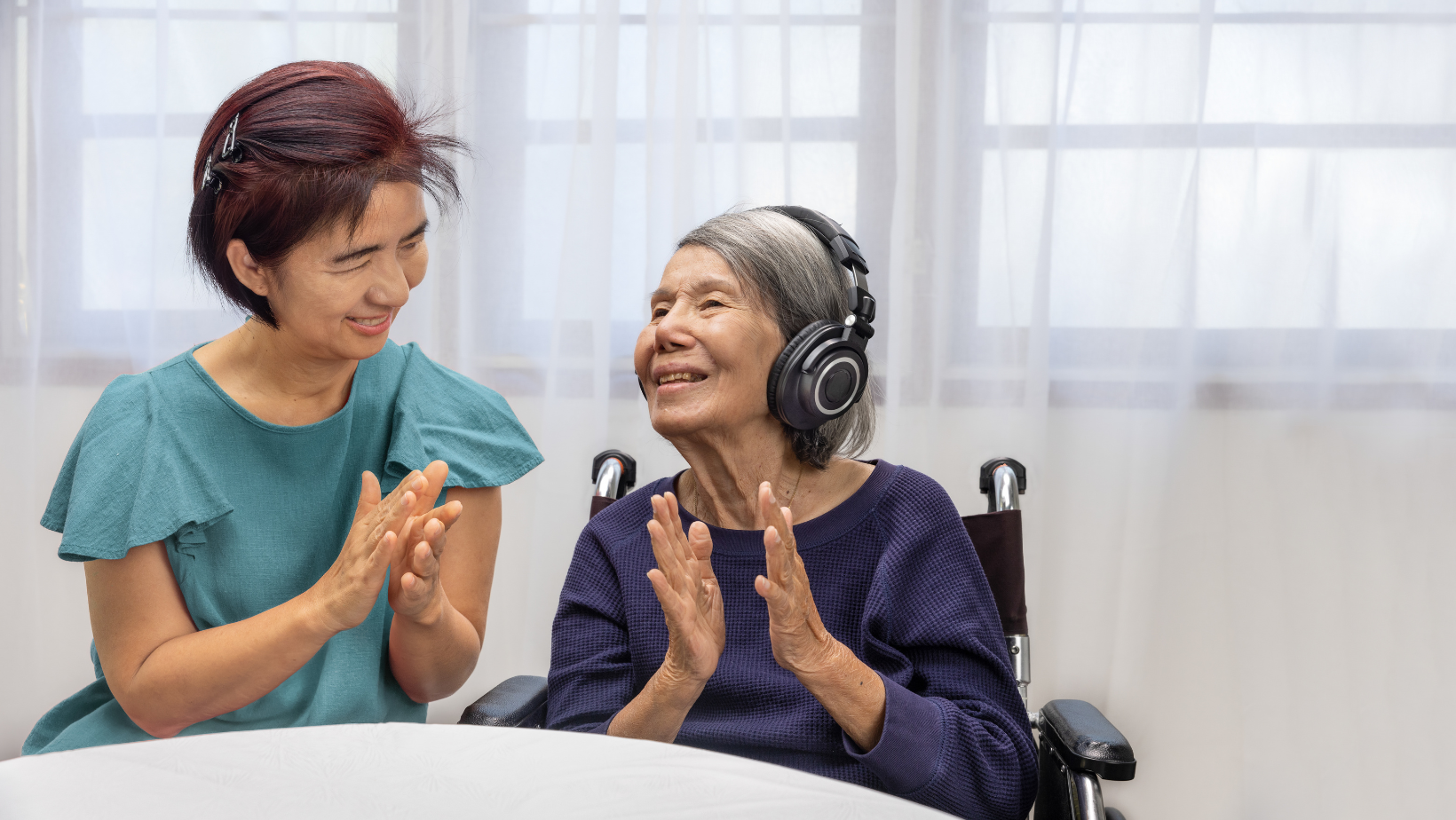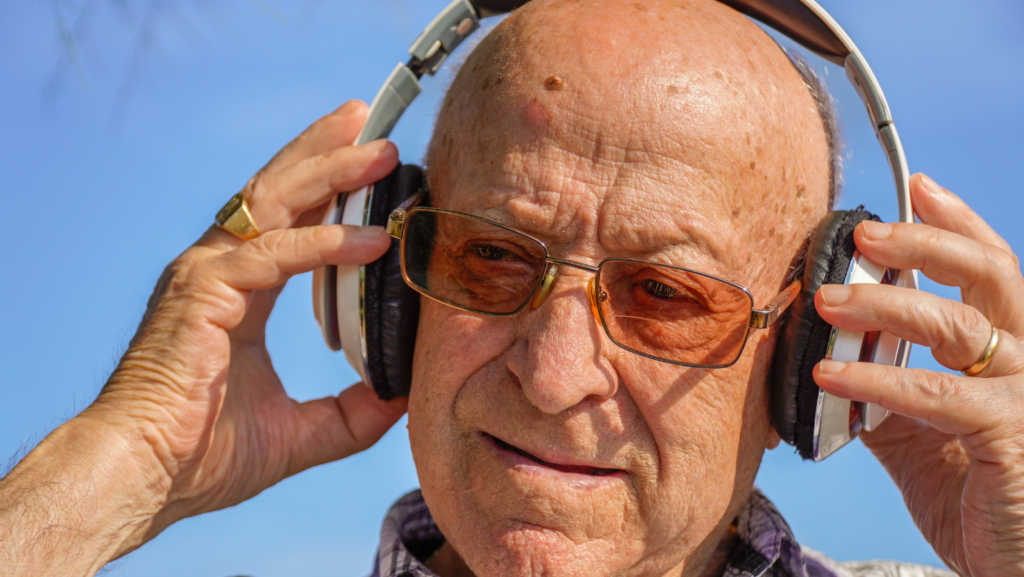Imagine a world where music isn’t just a source of entertainment, but a tool for healing.
So, let’s strike a chord and explore how this harmonious therapy is revolutionizing dementia care.
Music Therapy for Dementia
 Delving deeper into the topic of music therapy for dementia care approach, one can better comprehend the essence of the procedure. This section expands upon the basics of music therapy, its therapeutic impact, and how it aids those battling dementia.
Delving deeper into the topic of music therapy for dementia care approach, one can better comprehend the essence of the procedure. This section expands upon the basics of music therapy, its therapeutic impact, and how it aids those battling dementia.
Music therapy, simply put, stands as a therapeutic methodology designed around the use of music to aid in physical, emotional, and cognitive aspects of healing. It’s not merely a cursory listening exercise or an orchestrated performance session, but a designed intervention steered by a certified music therapist. These professionals skillfully use music-oriented activities like singing, instrument playing, and sound immersion to evoke responses aimed at achieving specific therapeutic goals. For instance, they may use calming music (e.g., soft classical tunes) to promote relaxation or faster beats (e.g., jazz, pop) to stimulate movement or cognition.
How It Helps with Dementia
 Music therapy for dementia demonstrates dramatic effectiveness in the care of those with dementia. Its benefits stretch beyond the scope of typical dementia treatments. Essentially, the therapy’s melodic influences can trigger memory recollection, thus aiding patients in revitalizing past experiences. This aspect proves particularly beneficial in dementia cases, given the prevalent memory loss associated with the condition. Furthermore, rhythms in the music can foster synchronization, invigorating motor skills and enabling improved mobility, often challenged in those coping with the disease.
Music therapy for dementia demonstrates dramatic effectiveness in the care of those with dementia. Its benefits stretch beyond the scope of typical dementia treatments. Essentially, the therapy’s melodic influences can trigger memory recollection, thus aiding patients in revitalizing past experiences. This aspect proves particularly beneficial in dementia cases, given the prevalent memory loss associated with the condition. Furthermore, rhythms in the music can foster synchronization, invigorating motor skills and enabling improved mobility, often challenged in those coping with the disease.
Music therapy also contributes positively towards emotional well-being. As dementia progresses, it often fosters feelings of frustration or anxiety among the patients; it’s here that the soothing potency of melody may serve as a balm. It serves as a channel for expressing thoughts and emotions which, due to the disease, become increasingly hard to verbalize. These therapy sessions, hence, not only enhance cognitive functionality but also help in emotionally supporting dementia patients.
Benefits of Music Therapy in Dementia Care
Cognitive Benefits
Music therapy constitutes an innovative contribution to dementia care, offering substantial cognitive benefits. Specially trained music therapists harness the rhythmic component of music to optimize neuroplasticity, stimulating brain function in dementia sufferers. Compelling evidence exists that this practice enhances memory recall. For instance, patients often show remarkable ability to remember long-forgotten songs, proving this therapy’s potential to bridge the gaps in long-term memory caused by dementia. Furthermore, it sharpens attention span and improves cognitive abilities, all testifying to music’s potency as a therapeutic tool.
Emotional and Social Benefits
 In addition to cognitive gains, significant emotional and social benefits are associated with music therapy. As the dementia journey progresses, building social connections becomes increasingly challenging for sufferers. Music therapy mitigates this, fostering an environment that encourages emotional expression and social interaction. Patients under this therapy show increased positivity, reduced agitation and, crucially for a condition often characterised by isolation, enhanced social engagement. For example, communal music therapy sessions introduce a platform where individuals can interact, sing together, and share experiences, thereby alleviating feelings of loneliness and isolation. Overall, the residual effects of this therapy stretch far beyond the session itself, cultivating a more balanced state of emotional well-being and a stronger sense of community among patients.
In addition to cognitive gains, significant emotional and social benefits are associated with music therapy. As the dementia journey progresses, building social connections becomes increasingly challenging for sufferers. Music therapy mitigates this, fostering an environment that encourages emotional expression and social interaction. Patients under this therapy show increased positivity, reduced agitation and, crucially for a condition often characterised by isolation, enhanced social engagement. For example, communal music therapy sessions introduce a platform where individuals can interact, sing together, and share experiences, thereby alleviating feelings of loneliness and isolation. Overall, the residual effects of this therapy stretch far beyond the session itself, cultivating a more balanced state of emotional well-being and a stronger sense of community among patients.
Music therapy for dementia care is clear. It’s more than just an enjoyable activity; it’s a powerful tool that can unlock memories, foster social engagement, and reduce agitation. The cognitive benefits are substantial, with music therapy promoting brain function and enhancing neuroplasticity for improved memory recall. But it’s not just about cognitive improvements. Music therapy also offers emotional and social benefits, creating avenues for emotional expression and enhancing social interaction among dementia patients. The real-life experiences shared in this article further reinforce the value of music therapy in dementia care. These stories are testament to the transformative power of music therapy, with significant improvements in behavior, social engagement, and cognitive abilities observed.

